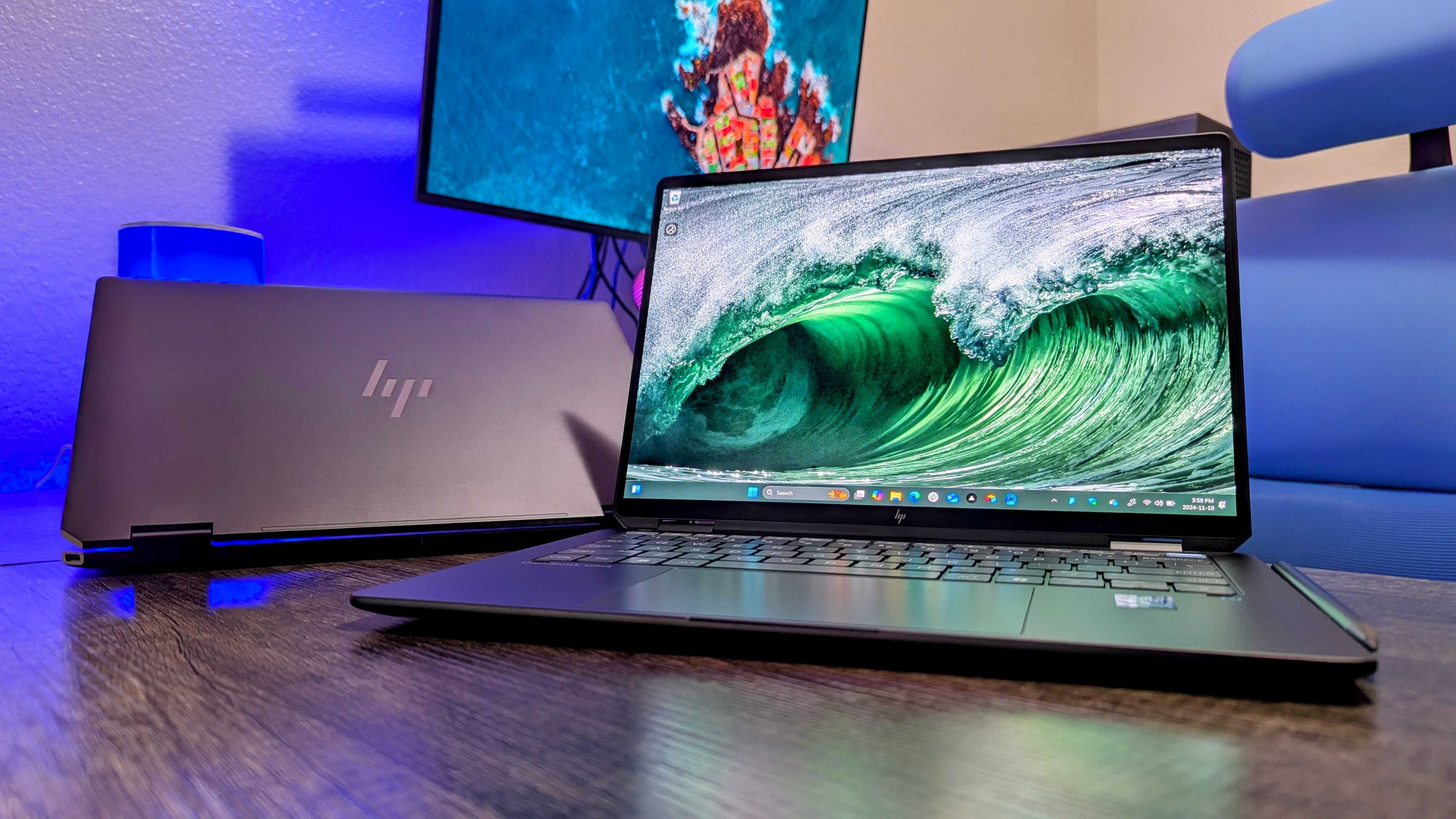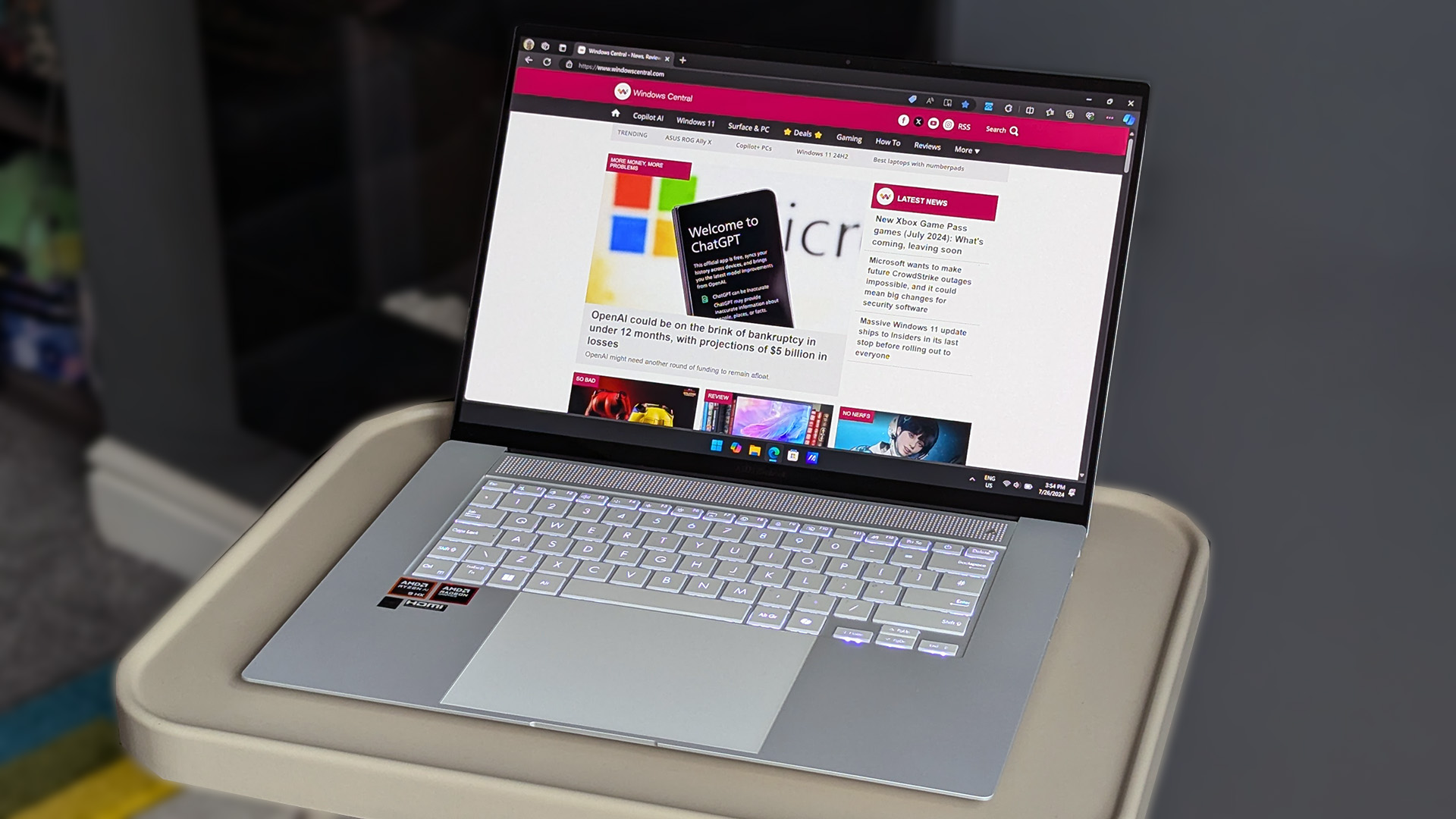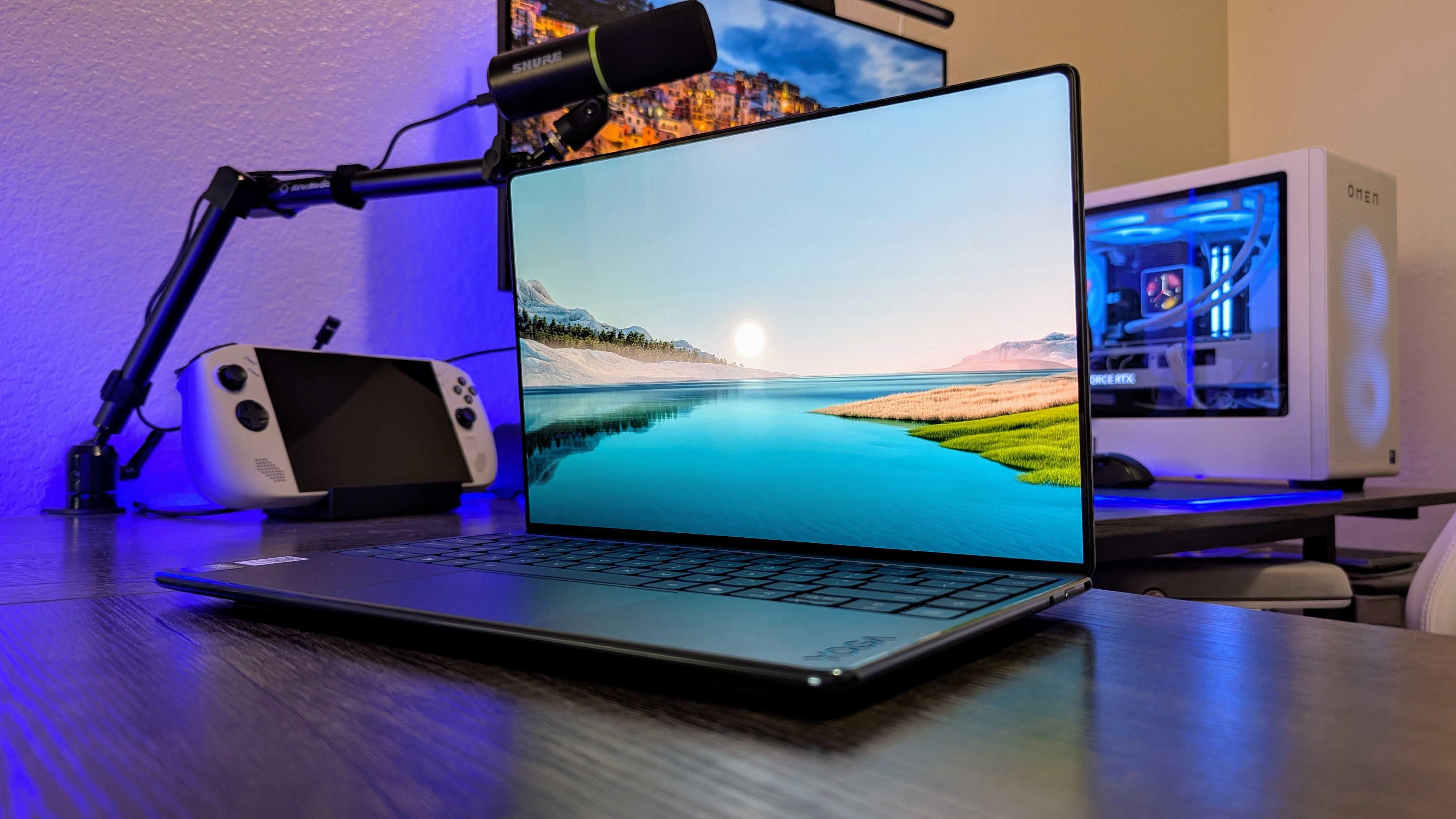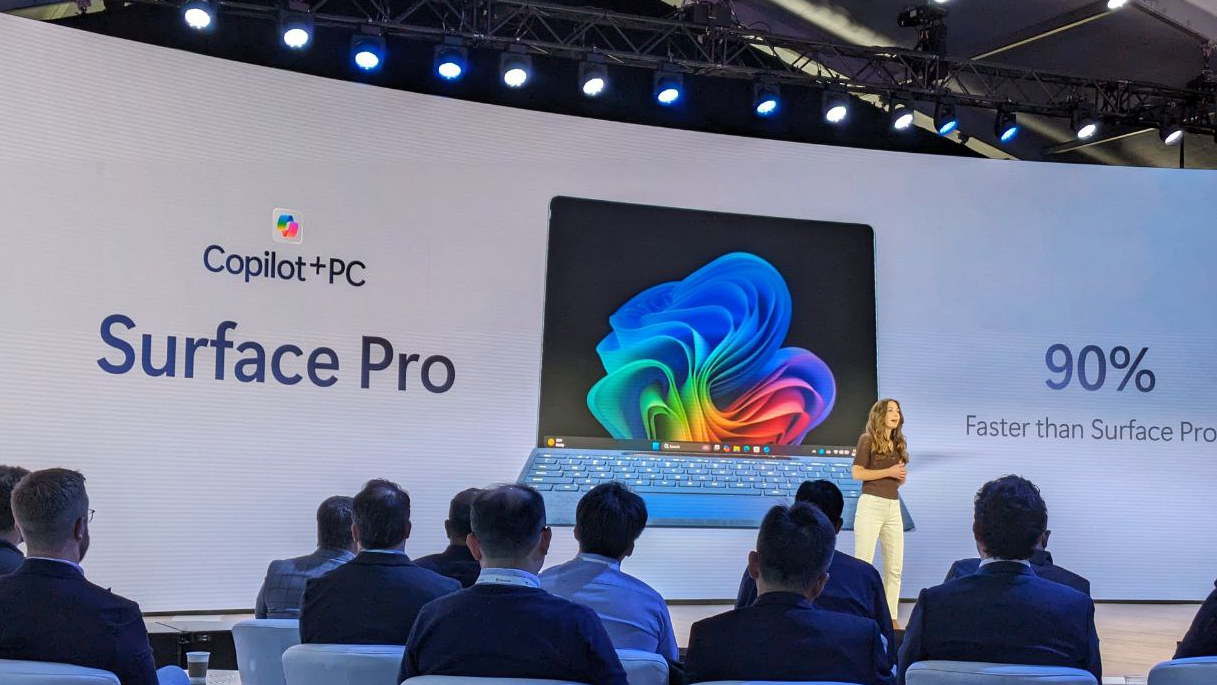Intel reveals what’s stopping AI PC adoption — and it’s not the hardware
AI PCs are becoming the norm, but a lack of trust and understanding could limit their real-world impact.

All the latest news, reviews, and guides for Windows and Xbox diehards.
You are now subscribed
Your newsletter sign-up was successful
We could soon see a massive push for AI PC adoption, according to Intel. The tech giant shared the results of a survey of over 5,000 businesses and IT decision makers conducted to gain insight into the adoption of AI PCs.
The survey aimed to determine how much people know about AI PCs and what roadblocks prevent AI PC adoption.
The survey, which was commissioned by Intel, showed that 87% of global businesses are transitioning to AI PCs or plan to transition in the future.
Intel highlighted that many people already rely on AI services, such as real-time translation. However, many AI tools are cloud-based and do not require the end user to have an AI PC.
But the data also suggests that IT workers want local AI capabilities and that those departments have the support of C-suite executives.
What’s holding AI PCs back?
An education gap appears to be a major factor limiting AI PC adoption. According to Intel, only 35% of employees have a "concrete understanding" of the business value of AI. In contrast, over half of leadership team members see the potential brought by AI PCs, the survey results state:
- Among the wider employee base, there’s an education gap around the potential of AI PCs—only 35% of employees are thought to have a concrete understanding of this technology’s business value, so they aren’t likely to be the driving force behind AI PC adoption.
- Conversely, more than half (51%) of leadership team members have a firm understanding of the potential AI PCs bring—this is likely to make them more receptive to the idea of investment.
Honestly, I find those figures shocking. In fact, I'd go as far as to say they are unbelievable.
All the latest news, reviews, and guides for Windows and Xbox diehards.
I don't think that's Intel's fault, however. In my experience — outside of my current place of work — middle and upper management like using buzzwords and feeling like they're on the cutting edge. I would fully expect leaders to confidently proclaim AI is the future, regardless of whether they have any concrete plans for the technology.
Whether those managers genuinely believe the hype or just like being modern is impossible to say.
In my opinion, using a survey to determine how many managers and leaders understand AI is like using a scan of Tinder profiles to determine how many male users are actually 6'0" tall. People lie on surveys (and on dating profiles).
AI and security
Intel's survey revealed that roughly 33% of non-adopters cite security as their biggest concern about AI PCs. In contrast, only 23% of people using AI highlight security as a challenge.
Knowledge is a significant roadblock to AI PC adoption, according to Intel. More specifically, 34% of respondents listed the need for training as the biggest issue.
Notably, 33% of those who use AI PCs have not experienced any issues at all, security-related or otherwise.
PC shipments
Global PC shipments grew 8.4% year-over-year (YoY) in Q2 2025, according to the latest figures from Counterpoint Research. That's the largest YoY increase since 2022, which occurred during the global pandemic that spiked PC demand.
The firm attributes this growth to the upcoming end of Windows 10 support, and early adoption of AI PCs was a key factor in the increase in PC shipments. Global tariffs were also a factor, since retailers have had to build up inventory for later this year.
👉RELATED: Microsoft’s extra year of free Windows 10 security updates feels like a last-minute snooze button
As a reminder, PC shipment figures refer to how many devices were sent out by manufacturers. PC sales (what people actually bought) are a separate metric.
PC shipments generally rise or fall based on projections. Uncertainty surrounds upcoming quarters since there are several factors at play, such as fluctuating tariffs.
"Due to the US tariff-related uncertainty, PC shipments will likely weaken YoY starting from H2 2025," said Senior Analyst Minsoo Kang to Counterpoint Research. "However, demand for AI PCs is expected to become a significant tailwind in 2026. We expect more than half of the laptops shipped in 2026 onward to be an AI Laptop."
AI PCs may also become standard in the near future, which will make it difficult to determine how much of a factor AI capabilities are for consumers.
Affordable AI PCs
Earlier this year, Qualcomm introduced its 8-Core Snapdragon X Plus chip designed for more affordable Windows on Arm laptops. This week, AMD unveiled its Ryzen AI 5 330 processor that's also designed for affordable AI PCs.
With chips like those becoming more common, we'll likely see a rise in AI PC sales shortly, but that doesn’t necessarily prove there’s genuine interest in AI itself.
In September 2024, International Data Corporation (IDC) discussed how the need to upgrade hardware may be more of a factor for those purchasing PCs than AI.
"While AI has been a buzzword of late, it has yet to be a purchase driver among PC buyers," said Jitesh Ubrani, research manager, Worldwide Mobile Device Trackers.
Ubrani did note, however, that businesses may purchase AI PCs for the sake of future-proofing.
As PC manufacturers continue to improve device lineups over time, we'll see a massive wave of AI PCs launch. Many popular brands may be AI PCs by default, meaning that anyone who purchases one is technically adopting an AI PC — whether they mean to or not.
Disastrous Copilot+ PC launch
Interestingly, Intel's survey summary does not mention Copilot+ PCs, instead focusing on the more generic "AI PC" moniker. That may be for the best, since the "Copilot+ PC launch has been a total disaster."
As far as I'm aware, neither Qualcomm nor Microsoft specified that there was an exclusivity agreement regarding Copilot+ PCs, but Snapdragon X processors were the only chips to power Copilot+ PCs for quite a while.
AMD and Intel started shipping chips compatible with Copilot+ PC features in August 2024, but Microsoft did not extend the full range of Copilot+ experiences to those chips until later.
That strange dynamic has continued. In the same blog post that announced the expansion of the Copilot+ PC experience to PCs powered by AMD Ryzen AI 300 series and Intel Core Ultra 200V chips, Microsoft announced a feature that would be exclusive to Snapdragon X-powered PCs for a limited time.
AI PC adoption
Based on PC shipments, survey results, and all the information available, it is clear that many people have moved to AI PCs or plan to transition. What's unclear is the driving factor behind AI PC adoption.
Business leaders appear to value the potential of AI PCs. Even if the technology cannot have an immediate impact on productivity or revenue, organizations can future-proof themselves by purchasing AI PCs.
On the consumer side of things, an increasing number of entry-level and mid-range laptops will be AI PCs by default. Many premium computers are also AI PCs.
Over time, we may see the list of the best AI laptops and the best Windows laptops overlap significantly, or perhaps even entirely.
Without data on how much people are using NPUs for local AI tasks, it's difficult to determine if AI PCs are a buzzword or a must-have.

Sean Endicott is a news writer and apps editor for Windows Central with 11+ years of experience. A Nottingham Trent journalism graduate, Sean has covered the industry’s arc from the Lumia era to the launch of Windows 11 and generative AI. Having started at Thrifter, he uses his expertise in price tracking to help readers find genuine hardware value.
Beyond tech news, Sean is a UK sports media pioneer. In 2017, he became one of the first to stream via smartphone and is an expert in AP Capture systems. A tech-forward coach, he was named 2024 BAFA Youth Coach of the Year. He is focused on using technology—from AI to Clipchamp—to gain a practical edge.
You must confirm your public display name before commenting
Please logout and then login again, you will then be prompted to enter your display name.




